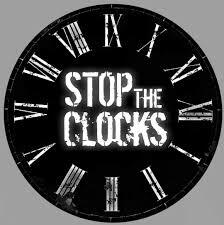I haven’t written much poetry in the last, oh, couple of decades. I couldn’t carve out time for creative writing while doing the PhD, and honestly (as I think I said in a podcast episode with Chris Pipkin?), I’ve hardly written any poetry since I got my first smartphone. Yikes. That’s telling, isn’t it?
When I had the pleasure and honor of spending a week with my client and friend Ursula in January, I was inspired by her calm daily routines, the quiet of her home, and the relatively tech-free existence she lives. I determined to cut back on my smartphone usages and screen time. (That has been going, shall we say, unevenly since then). At the very least, on workdays when I’m at home and manage to get up at a reasonable time (haha), I’m not turning the phone on until noon and trying to limit notifications and checking messages on my desktop computer.
Instead, I’m starting the day on paper. I’m practicing almost daily to try to get those poetry muscles back in shape. It’s a skill like anything else, and it gets rusty. However, I’m optimistic that regular work will get that part of my brain working well again. Plus I’ve lived so very much in these decades, enduring oceans’ worth of passion, pain, love, loss, suffering, pleasure, inspiration, rejection, and more. Along the way, I’ve shed a lot of the foolish self-consciousness and stupid self-respect. I’ve been burnt so badly and made aware of my own brokenness so deeply that there’s not much space or energy left to be precious or protective of my little self. It’s a mess. Of course. Everyone is.
That might mean–I’m hoping it will mean–that with the development of new skill will come new honesty, exposure of the inner darkness, and deeper human expression. I don’t really want to hide any longer. It’s ugly, but it’s real. We shall see how that works out!
Here are the first two completed pieces that have emerged from this new practice. You’ll see how clumsy the first one is. I began it during a Palm Sunday services at All Souls’ Anglican Church in Wheaton, IL, which I had the great joy of attending with my friend and client Lynn. The church building is gorgeous, and the service was among the highest of the high. During the sermon, the priest quoted Flannery O’Connor’s statement: “It has always seemed necessary to me to throw the weight of circumstances against the character I favor. The friends of God suffer, etc.,” she writes (The Habit of Being 120–121). He adjured us to gladly cling to the cross we’ve been told to take up, since the children God loves always suffer. The following ballad (which uses a meter favored by Leonard Cohen) explores this idea.
3 April 2024
mine to hold
“My guilt,” I said, “is mine to bear,”
and bowed my naked back.
The rough-hewn tree trunk fell like grief.
I bent to its impact.
The burden of the crossbeam’s weight
split my straining flesh.
I dug my fingers in the wood,
hung on for dearest death.
“I chose this sacrifice,” I groaned,
“and will not set it down.”
The pulp and splinters stuck and dried
into my open wounds.
Along the beam, my arms stretched out,
as if I love the load.
But I slipped and fell, then lay and wept
in a puddle of my blood.
As my limbs grew cold, then numb,
with solitary woe,
the vision in my pool of pain
shifted, and I knew:
the splintered edges of the beam,
the blood-streams in the mud
(the mud my tears had made of dust)
were not my own. Someone
was carrying the bitter beam,
the gushing wounds, the bloody load,
the burden of desire.
They are not mine to hold.

The next poem is a sonnet; I’m getting the formal-verse chops in shape first, since “free verse” is much, much harder (not to mention that it doesn’t exist). It’s on the same theme of loss, of giving up something or someone dearly loved, and is somewhat inspired by a sonnet of Edna St. Vincent Millay’s. Don’t compare the two, though, please, because hers is a perfect jewel of a sonnet! Mine isn’t, yet, but I think it’s better than that first attempt, don’t you? The title is also a gentle reference to a poem by W.H. Auden, to which you also should not compare mine.
3 April 2024
stop the clocks
It is not true that time will heal all wounds.
A broken bone unset is never well;
infection left unchecked can quickly kill;
and undernourished flesh is swift to bruise.
Wasting diseases thrive on passing years:
appetite declines and limbs grow thin,
weight melts off the patient and her skin
becomes translucent as her dying nears.
Even in the story of the God
becoming human, passing time but drew
Him closer to the opening of his wounds.
He wears their marks forever in His body.
They say that time will heal a broken heart.
Nonsense. Have they never heard of scars?



Leave a Reply